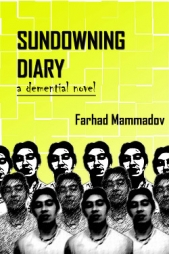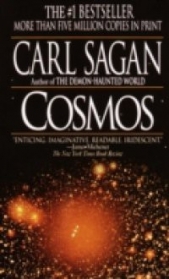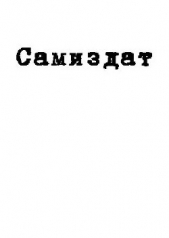[New Sun 04] The Citadel of the Autarch
![[New Sun 04] The Citadel of the Autarch](/uploads/posts/books/no-cover.jpg)
[New Sun 04] The Citadel of the Autarch читать книгу онлайн
Внимание! Книга может содержать контент только для совершеннолетних. Для несовершеннолетних чтение данного контента СТРОГО ЗАПРЕЩЕНО! Если в книге присутствует наличие пропаганды ЛГБТ и другого, запрещенного контента - просьба написать на почту [email protected] для удаления материала
(Once I had imagined such creatures threshing the forests of Urth and beating flat her cities. Had my thought helped bring these?)
It seemed a long time before the Ascian evzones saw them. Then two or three fired at once, and the converging bolts caught one at their intersection and blew it to rags, then another and another. For an instant the light was blotted out, and something cold and flaccid struck my face, knocking me down.
When I could see again, half a dozen of the Ascians were gone and the rest were firing into the air at targets almost imperceptible to me. Something whitish fell from them. I thought it would explode and put my head down, but ininstead the hull of the wrecked flier rang like a cymbal. A body—a human body broken like a doll’s-had struck it, but there was no blood.
One of the evzones jammed his weapon in my back and pushed me forward. Two more were supporting the Autarch much as the woman-cats had supported me. I discovered that I had lost all sense of direction. Though the moon still shone, masses of cloud veiled most of the stars. I looked in vain for the cross and for those three stars that are, for reasons no one understands, called The Eight and hang forever over the southern ice. Several of the evzones were still firing when there came blazing among us some arrow or spear that burst in a mass of blinding white sparks.
“That will do it,” the Autarch whispered. I was rubbing my eyes as I stumbled along, but I managed to ask what he meant.
“Can you see? No more can they. Our friends above .. , Vodalus’s, I think ... did not know our captors were so well armed. Now there will be no more good shooting, and as soon as that cloud drifts across the disc of Lune ...”
I felt cold, as though a chill mountain wind had cut the tepid air around us. A few moments before I had been in despair to find myself among these gaunt soldiers. Now I would have given anything for some guarantee that I would remain among them.
The Autarch was to my left, hanging limp between two evzones who had slung their long-barrelled jezails aslant their backs. As I watched, his head lolled to one side, and I knew he was unconscious or dead. “Legion” the woman-cats had called him, and it did not take great intellect to combine that name with what he had told me in the wrecked flier. Just as Thecla and Severian had joined in me, many personalities were surely united in him. Ever since the night I had first seen him, when Roche had brought me to the House Azure (whose odd name I was now, perhaps, beginning to grasp) I had sensed the complexity of his thought, as we sense, even in a bad light, the complexity of a mosaic, the myriad, infinitesimal chips that combine to produce the illuminated face and staring eyes of the New Sun.
He had said I was destined to succeed him, but for how long a reign? Preposterous as it was in a prisoner, and in a man so injured and so weak that a watch of rest on the coarse grass would have seemed like paradise, I was consumed with ambition. He had said I must eat his flesh and swallow the drug while he still lived; and, loving him, I would have torn my own from the grasp of my captors, if I had possessed the strength, to claim that luxury and pomp and power. I was Severian and Thecla united now, and perhaps the torturers’ ragged apprentice had, without fully knowing it, longed for those things more than the young exultant held captive at court. I knew then what poor Cyriaca had felt in the gardens of the archon; yet if she had felt fully what I felt at that moment, it would have burst her heart.
An instant later I was unwilling. Some part of me treasured the privacy that not even Dorcas had entered. Deep inside the convolutions of my mind, in the embrace of the molecules, Thecla and I were twined together. For others—a dozen or a thousand, perhaps, if in absorbing the personality of the Autarch I was also to absorb those he had incorporated into himself—to come ‘where we lay would be for the crowds of the bazaar to enter a bower. I clasped my heart’s companion to me, and felt myself clasped. I felt myself clasped, and clasped my heart’s companion to me.
The moon dimmed as a dark lantern does when one presses the lever that makes its plates iris closed until there remains no more than a point of light, then nothing. The Ascian evzones fired their jezails in a lattice of lilac and heliotrope, beams that diverged high in the atmosphere and at last pricked the clouds like coloured pins; but without effect.
There was a wind, hot and sudden, and what I can only call a flash of black. Then the Autarch was gone, and something huge rushed toward me. I threw myself down. Perhaps I struck the ground, but I do not remember it. In an instant, it seemed, I was swooping through the air, turning climbing surely, the world below no more than a darker night An emaciated hand, hard as stone and three times human size, clutched me about the waist.
We ducked, turned, lurched, slipped sidewise down a slope of air, then, catching a rising wind, climbed till the cold stung and stiffened my skin. When I craned my neck to look upward, I could see the white, inhuman jaws of the creature that bore me. It was the nightmare I had known months earlier when I had shared Baldanders’s bed, though in my dream I had ridden the thing’s back. Why that difference between dream and truth should be, I cannot say. I cried out (I do not know what) and above me the thing opened its scimitar beak to hiss.
From above, too, I heard a woman’s voice call, “Now I have repaid you for the mine—you are still alive.”
XXVI. Above the Jungle
WE LANDED BY STARLIGHT. It was like awakening; I felt that it was not the sky but the country of nightmare I was leaving behind. Like a falling leaf, the immense creature settled in narrowing circles through regions of progressively warmer air until I could smell the odour of the Jungle Garden: the mingling of green life and rotting wood with the perfume of wide, waxen, unnamed blossoms.
A ziggurat lifted its dark head above the trees—yet carried the trees with it, for they sprouted from its crumbling walls like fungi from a dead tree. We settled on it weightlessly, and at once there came torches and excited voices. I was still faint from the thin and icy air I had been breathing only moments before.
Human hands replaced the claws that had grasped me for so long. We wound down ledges and stairways of broken stone until at last I stood before a fire and saw across it the handsome, unsmiling face of Vodalus and the heart-shaped one of his consort, Thea, our half sister.
“Who is this?” Vodalus asked.
I tried to lift my arms, but they were held. “Liege,” I said, “you must know me.”
From behind me, the voice I had heard in the air answered, “This is the man of the price, the killer of my brother. For him, I—and Hethor, who serves me—have served you.”
“Then why do you bring him to me?” Vodalus asked. “He is yours. Did you think that when I had seen him, I would repent of our agreement?”
Perhaps I was stronger than I felt myself to be. Perhaps I only caught the man on my right off-balance; however it was, I succeeded in twisting about, jerking him into the fire, where his feet sent the red brands flying.
Agia stood behind me, naked to the waist, and Hethor behind her, showing all his rotten teeth as he cupped her breasts. I fought to escape. She slapped me with an open hand—there was a pull at my cheek, tearing pain, then the warm rush of blood.
Sitter then, I have learned that the weapon is called a lucivee, and that Agia had it because Vodalus had forbidden any but his own bodyguard to carry arms in his presence. It is no more than a small bar with rings for the thumb and fourth finger, and four or five curved blades that can be concealed in the palm; but few have survived its blow.
I was one of those few, and rose after two days to find myself shut in a bare room. Perhaps in each life one room must become better known than any other: for prisoners, it is always a cell. I, who had worked outside so many, thrusting in trays of food to the disfigured and demented, now knew again a cell of my own. What the ziggurat had once been, I never guessed. Perhaps a prison indeed; perhaps a temple, or the atelier of some forgotten art. My cell was about twice the size of the one I had occupied beneath the tower of the torturers, six paces wide and ten long. A door of ancient, gleaming alloy stood against the wall, useless to Vodalus’s jailers because they could not lock it; a new one, roughly made of the ironlike timbers of some jungle tree, closed the doorway. A window I believe had never been meant for one, a circular opening hardly bigger than my arm, pierced the discoloured wall high up and gave light to the cell.























